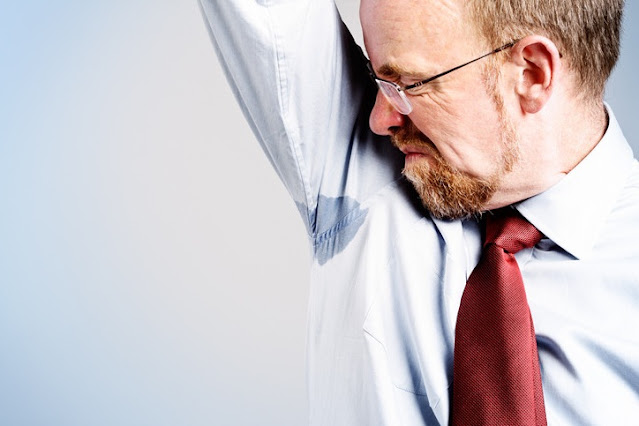Sweating is an essential physical process on the human body, which has direct effects on health. There are many skin diseases in which there is no sweating due to which the body temperature is not normal in a hot environment, so sweating is a necessary process of the body which keeps the body temperature low because sweat which is a liquid. When it evaporates in the form of vapor, it takes the heat of the body with it, due to which the body remains cool.
Two types of sweat glands in the human body One type of gland is called exocrine and the other type is epocrine. There are about two million eccrine glands in the human body, which regulate body temperature. Most of them are found in the feet and less in the back. Apocrine glands are the scent producing glands in the body and the number of ras is higher in the armpits, specific organs around the eyes and in the scalp. These glands are more powerful in animals.
Secretory coils are involved in the production of sweat by the extrinsic glands that control the temperature of the human body which is acted upon by thyrocholine which acts as a neurotransmitter affecting the nervous system. In the process of excreting sweat glands, sweat is brought to the skin through the ducts of the myoepithelial cells, which is initially very light and similar to plasma, but sodium and Due to the excess of water, it is reabsorbed into the body as it becomes a hypertonic solution.
The process of reabsorption inside the body maintains the electrolyte and water balance in the human body. In addition to electrolytes (sodium, potassium, calcium) and water, metal compounds and urea, amino acids, glycoproteins and acidic mecopolysaccharides are found. The hypothalamus plays a significant role in the production of sweat. It is a special part of the brain whose function is to regulate body temperature.
The thing that bothers a person the most is smelly sweat. First, sweat is a germ-free, odorless, colorless, liquid that contains substances produced by both glands. When the number of bacteria in the armpits increases too much. Apocrine sweat causes odor because it contains more organic matter on which bacteria can easily grow.
On the other hand (Eccroine gland) sweat is very thin and not favorable for the growth of bacteria, but it provides moisture to most parts of the body, due to which the chances of bacteria growth increase. Another prominent role in armpit odor. It is from the hair in the armpit. The smell of armpits mostly occurs after puberty because only after puberty, the hair around the armpits and specific organs starts to grow.*
The smell of the sweat in the armpits is different for each person Because the composition of the sweat of each person is also slightly different because it depends on the human diet that he consumes, in addition to the physical and psychological conditions of the body. It is also on condition. Consumption of garlic, onions and weiss grass increases the smell of sweat.
If the sweat does not remain in the armpits, then odor does not occur.
1. To reduce the amount of sweat.
2. To prevent bacteria from being produced by the use of chemical compounds.
The first method has bad effects on the human body, If the sweat is reduced, it can result in dry mouth, dry eyes and difficulty in passing urine.




0 Comments